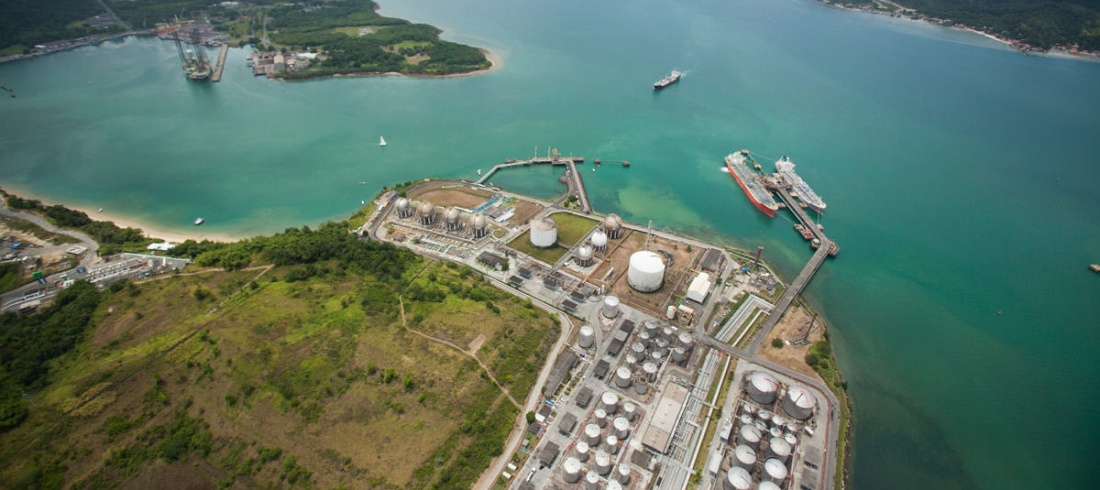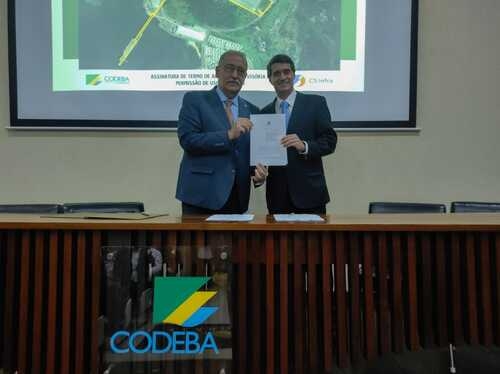
CODEBA and CS Infra sign protocol to kickstart operations at the Port of Aratu-Candeias
Jun, 09, 2022 Posted by Gabriel MalheirosWeek 202223
Companhia das Docas da Bahia (CODEBA) and CS Infra, a SIMPAR Group company, signed, on June 08, a protocol that marks the beginning of new operations at two terminals in the Port of Aratu-Candeias.
CS Infra, formerly known as CS Brasil, plans to invest R$ 627 million in the first three years applied to improvement and modernization works as provided for in the plant submitted to the Ministry of Infrastructure. The ATU12 and ATU18 contracts correspond to areas that together range over 200,000 m² and will last for 25 and 15 years, respectively. Both can be extended for up to 70 years.
The works will occur without harming ongoing operations.
“We are witnesses to a watershed moment in Bahia’s port policy. It is an important contribution to the generation of jobs and more business opportunities, strengthening the local economy”, highlighted Carlos Autran Amaral, CODEBA’s CEO, current manager of the Port of Aratu-Candeias, as well as the Ports of Salvador and Ilhéus.
The ATU12 port terminal, which covers an area of 150,000 m², will receive investments to build, for example, a new belt conveyor system with increased capacity and transfer houses to improve bulk handling. The ATU18, with an area of 51 thousand m², will receive investments to build 5 silos of 18 thousand tonnes each, with static capacity for grain storage, as well as a new mooring pier with a conveyor belt system.
The terminals are expected to receive ships with 120 thousand/tonne capacity in four years, increasing daily movement to more than 20 thousand/tonne.
-
Ports and Terminals
Sep, 21, 2022
0
Latest Port of Santos privatization update calls for BRL 25bn in investments
-
Grains
Dec, 08, 2022
0
Taiwan buys 130,000 t of corn from Brazil in private deals
-
Grains
Nov, 08, 2020
0
Brazil facilitates import of transgenic grains from the USA
-
Economy
Apr, 24, 2024
0
Argentina economic activity seen plunging 6% in February


